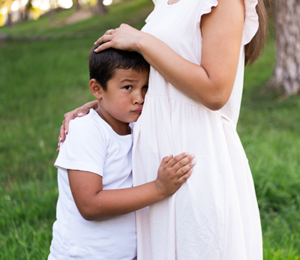Do you wonder why your high schooler refuses to go to the store or attend parties or why your middle schooler doesn’t like to raise their hand in class? Symptoms of social anxiety in children and teens are more extreme reactions to social situations that go beyond shyness, where a child may be hesitant or quiet. About three out of ten children who have ADHD also have some type of anxiety.
The middle and high school years can be a time when many children and teens with ADHD are diagnosed with social anxiety disorder. This is the time when adolescents and teens are trying to figure out where they belong among their peers. They are learning and mastering new life skills and becoming more independent. Navigating social situations can cause anxiety in young people who struggle with social skills and have difficulty decoding social cues, as do many children and teens who have ADHD. Social anxiety disorder can be impairing and interfere with daily activities, causing some children and teens to retreat from social situations. It can also block their ability to self-advocate in school and social situations.
What is social anxiety disorder?
“Social anxiety is a fear that people will scrutinize you in familiar or unfamiliar social situations and that this negative judgment will have harmful effects on you,” says Sharon Saline, PsyD, author of What Your ADHD Child Wishes You Knew: Working Together to Empower Kids for Success in School and Life.
Children and teens with social anxiety disorder tend to focus on what they believe other people are thinking about them, something that is outside of reality, says Dr. Saline. A child may be afraid of being judged if they speak out in class, and the fear may be so overwhelming that they say nothing. This can loop to feeling even more anxiety because they worry about also being judged for not saying anything.
“I struggle to join in because the anxiety is crippling, and I just feel like everything I do or say will be judged,” one teen writes on a popular social media site. “Then I start worrying that people will judge me for being quiet or not getting involved. It’s a totally vicious circle.”
Having both ADHD and social anxiety can cause intense feelings of fear, this teen explains, which then can cause shutdown and avoidance of social situations. These reactions are much more than feelings of shyness, becoming something difficult to overcome and more limiting in activities and socializing.
The symptoms of social anxiety can be broken down into four components, according to Dr. Saline.
- Cognitive: conscious thoughts based on negative core beliefs
- Behavioral: safety-seeking behaviors like avoidance
- Emotional: self-doubt, shame, self-criticism
- Physiological: blushing, shaking, quivering voice, stuttering, nausea, perspiring
Children and teens with social anxiety often have low self-esteem and feel they are deficient in some way. These feelings can create a set of personally negative core beliefs along with significant feelings of fear, panic, and worry. A mental health professional can help your child change their negative beliefs and develop strategies to cope with their social anxiety.
How can you help?
When your child experiences symptoms of social anxiety, it may be instinctual for you to offer reassurance. Unfortunately, this can often reinforce your child’s anxiety instead of helping them learn ways to deal with their fears.
“When people suffer from anxiety, they usually want comfort and certainty,” says Dr. Saline. “Kids, especially, push for reassurance and eliminating the cause of their worry. But these responses don’t work. They don’t teach much-needed skills for tolerating being uncomfortable, unsure, or disappointed, thereby allowing someone to bounce back.”
Parents can help their children identify negative core beliefs and name their worries. Empathize with your child, but be sure not to reassure them by trying to dismiss their worries. Validate their worries instead, by saying “Yes, that does sound scary,” or “I can see why that would worry you.” Talking about the likelihood of your child’s worry happening can help reduce their fear. Encourage your child to describe what a worst-case/best-case scenario could look like to them or suggest they take a small risk that challenges their fear, suggests Dr. Saline.
Mindfulness is another way that your child can cope with social anxiety.
“Mindfulness is a practice of being attentive to, and accepting of, experiences in the present moment, just as they are,” says Lidia Zylowska, MD, co-founder of the UCLA Mindful Awareness Research Center. Mindfulness can also help children regulate their emotions to better deal with stress and anxiety.
You can help your child develop a mindfulness practice by setting aside a small amount of time each day to practice meditation together. Eventually, your child will develop their mindfulness into a habit that can help them better manage their social anxiety.
More on helping children and teens with anxiety:
- Webinar: Solutions for Social Anxiety in Children and Teens with ADHD
- Worried and Preoccupied? You Can Reduce Anxiety and Live More Confidently
- Using Mindfulness When Parenting a Child with ADHD
- Mindfulness, ADHD, and Managing Emotions
- Find Your Own Way to Practice Mindfulness
Join the discussion: How do you encourage your child or teen to manage anxiety?


